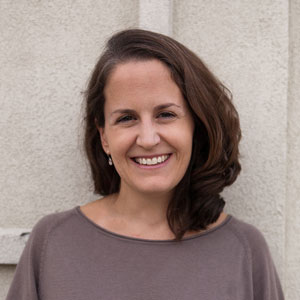
“If you would see yourself reflected in the mirror of awareness the way you see your face reflected in the looking glass… exactly as it is without the slightest distortion or addition, and if you observed this reflection without any judgment or condemnation, you would experience all sorts of marvelous changes… It is this nonjudgmental awareness alone that heals and changes and makes one grow.” Anthony de Mello, The Way to Love; The Last Meditations of Anthony de Mello
You know it’s bad when you leave Wegmans, heading towards the parking lot, and your child says, “No, Mommy, the car is over there.” What a relief to know that my daughter did not inherit my sense of direction! Both of my children have learned about U-turns from me. The GPS lady is a dear friend of mine, though sometimes she drives me up the wall with her pleasant, repetitive “Recalculating.” My spatial and directional impairment used to be a source of terrible shame to me. I recall in high school the absolute torture of sitting behind the wheel next to Biff, the grumpy driving instructor who smoked cigarettes with the windows up, made me take him to McDonalds for his morning coffee, and enjoyed exposing my disability and watching me squirm: “You mean you’ve grown up here, you’ve lived in this area all of these years, and you don’t know where you are?” Another memory of shame involves a camping trip with a friend when I was in my early twenties. One night, I went to use the bathroom in the dark. I chose a light on the side of the building as a landmark to help me find my way back to our campground, but when I emerged from the bathroom, I discovered that all four walls had identical doors and lights. Total panic. Almost an hour later, I found our campsite, thinking, “I hate this about myself.”
Every January, we’re bombarded with articles about New Year’s resolutions: “10 Ways to Drop 20 Pounds!” “21 Days to a New You!” And while I see nothing wrong with the desire to embrace a healthy lifestyle, I have lived and have witnessed far too much distress resulting from feelings of inadequacy and shame, and efforts to be “perfect.” Self-acceptance, in my opinion, is a far more powerful and life-changing New Year’s resolution.
What is so appealing about perfection? Are you really drawn to people who seem perfect? Do you want to be close to the person who always has the right answer, or who never seems to struggle, or whose appearance reminds you of an (airbrushed) magazine cover?
So many people who come into my office believe themselves to be defective and others to “have it all together.” The underlying belief is this: “If I could (blank), then I would be loved.” If I could lose weight… If I could get straight A’s or go to that school… If I could be promoted and make more money… If I could have the right clothes, hair, and make-up… If I could be more selfless and giving… If I could be funny and entertaining… Fill in the blank for yourself. The problem is that our efforts to reach what we believe is the standard, actually sabotage our ability to receive real love.
Have you ever tried to love someone who thinks he isn’t good enough, or who is always critical of herself? It can be a very frustrating and burdensome experience. This person requires constant reassurance of his or her value and yet continues to negate it. He or she is unable to hear any uncomfortable feedback in the relationship without going into depression– “I’m such a failure.” An obsessive focus on one’s faults can appear to be a sign of humility, but when explored more deeply, it is often revealed as a form of narcissism,– a self-absorbed self-abuse. I had a professor in graduate school who called this state “negative grandiosity.” To a room full of eager-to-please (neurotic) graduate students going into the mental health profession, he said, “Get over yourselves. You’re no worse than anyone else.” What a refreshing perspective. He taught and lived self-acceptance– of our humanness, our mistakes, our defenses, our moments of pettiness, our struggles. When aware of these parts of ourselves, we can respond with openness and curiosity: “Hmm… I wonder why I’m feeling jealous/anxious/superior/angry/lonely/turned on/embarrassed right now.” We can offer ourselves gentleness, even humor (“There I go again…”). We can notice, accept, and let go. How freeing. How attractive… much more attractive, in my experience, than either the appearance of perfection or the weight of self-berating criticism.
I heard recently about a father who screamed at his young daughter for dropping her sandwich on the floor. A young woman shared with me a memory of being punished severely by her mother after “missing the toilet” when she was a little girl. Leaving a doctor’s office last week, I walked past a father yelling at his son after the boy accidentally bumped into a stranger: “What is wrong with you?!!” Incidents like these really sadden me. Most likely, these parents were shamed and punished for their own humanness growing up. Anthony de Mello writes, “Don’t be harsh or impatient or hating of yourself. How can love grow out of such attitudes? But rather, hold onto the compassion.”
Over several years, I have come to see my directional mishaps as opportunities to practice what I preach, to model for my daughters a non-defensive and gentle self-acceptance, to know myself realistically, and to laugh.
This New Year, I suggest that true progress for many of us will not be about trying harder, getting better control of ourselves, recreating ourselves as the “more acceptable” versions we (or others) have in mind. Sometimes the change we most desperately need is an open-hearted acceptance of who we are and of what is true.
About Lynn Davies
I am a Licensed Clinical Professional Counselor with a Master of Science in Pastoral Counseling from Loyola University in Maryland. I have been in private practice for over fourteen years and have experience working with adults and adolescents, addressing a variety of issues: anxiety, depression, relationship problems, past or current trauma, eating disorders, self-mutilation, bereavement, parenting concerns, boundaries, and self-care.
- Web |
- More Posts(22)

